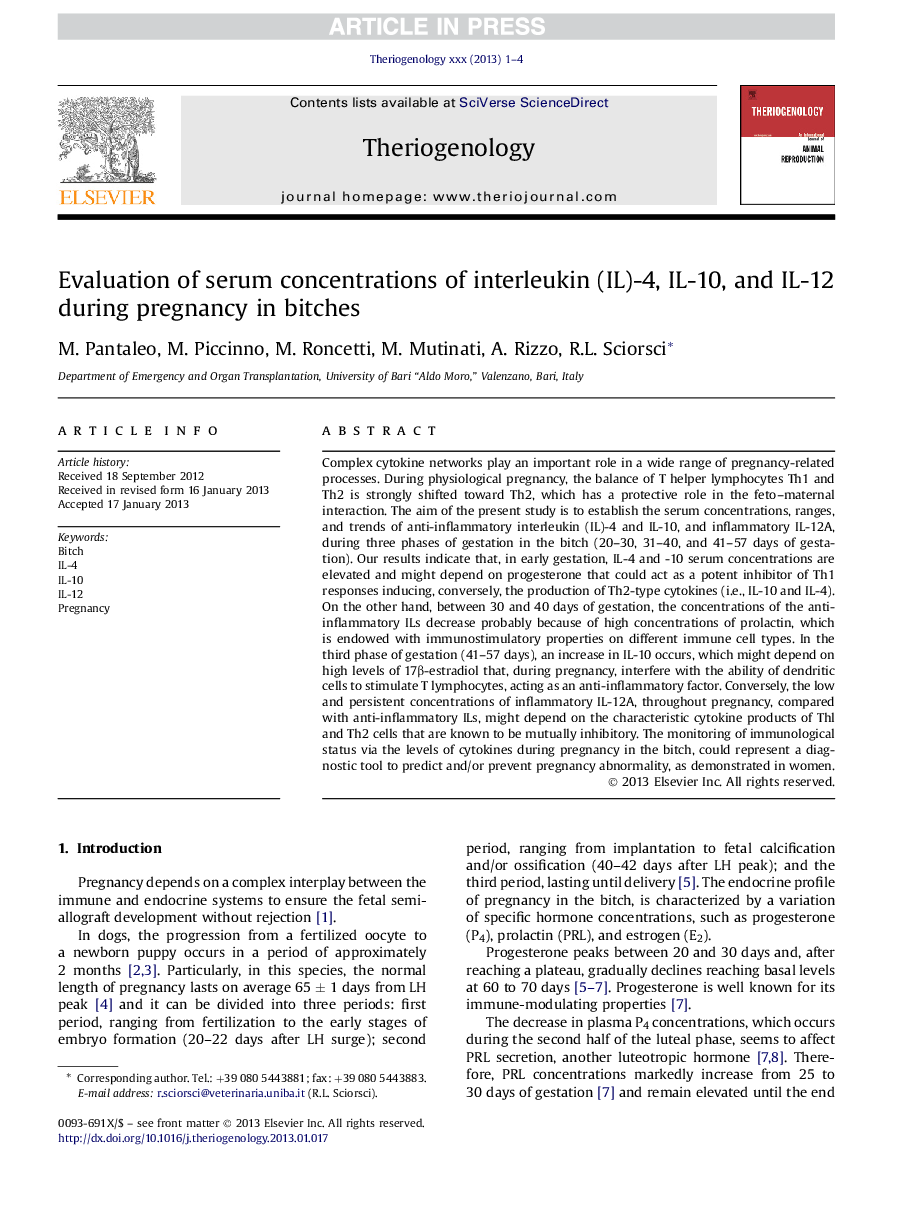| Article ID | Journal | Published Year | Pages | File Type |
|---|---|---|---|---|
| 10892673 | Theriogenology | 2013 | 4 Pages |
Abstract
Complex cytokine networks play an important role in a wide range of pregnancy-related processes. During physiological pregnancy, the balance of T helper lymphocytes Th1 and Th2 is strongly shifted toward Th2, which has a protective role in the feto-maternal interaction. The aim of the present study is to establish the serum concentrations, ranges, and trends of anti-inflammatory interleukin (IL)-4 and IL-10, and inflammatory IL-12A, during three phases of gestation in the bitch (20-30, 31-40, and 41-57 days of gestation). Our results indicate that, in early gestation, IL-4 and -10 serum concentrations are elevated and might depend on progesterone that could act as a potent inhibitor of Th1 responses inducing, conversely, the production of Th2-type cytokines (i.e., IL-10 and IL-4). On the other hand, between 30 and 40 days of gestation, the concentrations of the anti-inflammatory ILs decrease probably because of high concentrations of prolactin, which is endowed with immunostimulatory properties on different immune cell types. In the third phase of gestation (41-57 days), an increase in IL-10 occurs, which might depend on high levels of 17β-estradiol that, during pregnancy, interfere with the ability of dendritic cells to stimulate T lymphocytes, acting as an anti-inflammatory factor. Conversely, the low and persistent concentrations of inflammatory IL-12A, throughout pregnancy, compared with anti-inflammatory ILs, might depend on the characteristic cytokine products of Thl and Th2 cells that are known to be mutually inhibitory. The monitoring of immunological status via the levels of cytokines during pregnancy in the bitch, could represent a diagnostic tool to predict and/or prevent pregnancy abnormality, as demonstrated in women.
Related Topics
Life Sciences
Agricultural and Biological Sciences
Animal Science and Zoology
Authors
M. Pantaleo, M. Piccinno, M. Roncetti, M. Mutinati, A. Rizzo, R.L. Sciorsci,
